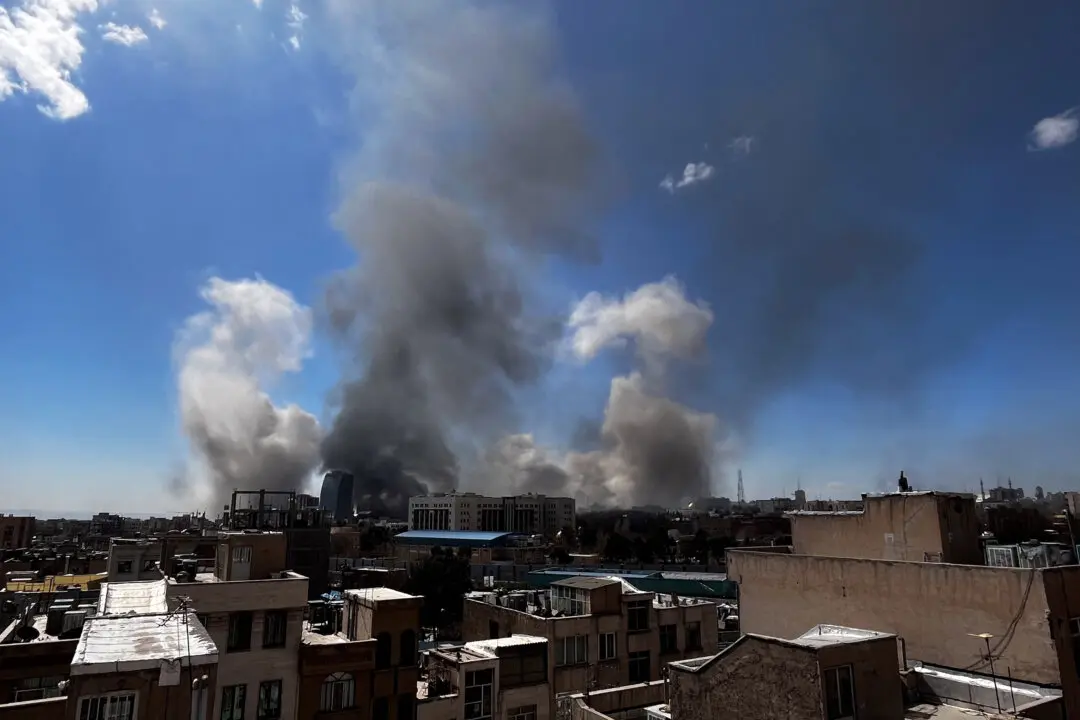MIAMI—A traditional Haitian rara band loudly snaked through the crowd, its insistent drums and horns leading the members of Arcade Fire to a small outdoor stage.
The Canadian musicians thanked the members of Rara Lakay in a smattering of Haitian Creole, and building on their beats launched into songs from a new album heavily influenced by Haiti’s unique rhythms.
“We wouldn’t have been able to make this album without Haiti,” said Arcade Fire frontman Win Butler.
The Oct. 24 show at the Little Haiti Cultural Center was the second of two Miami performances that billed the band as “The Reflektors.” Arcade Fire’s new album “Reflektor” was released on Oct. 28.
Butler’s wife and bandmate Regine Chassagne is Haitian, and the band has travelled to the Caribbean country in recent years, including a trip to Haiti’s Carnival in Jacmel.
Butler told Rolling Stone magazine that the songs on “Reflektor” explore the transformative experiences the band has had in Haiti, particularly the song “Here Comes the Night Time,” which builds to a rara-inspired chaos. At the Miami concert, Butler ad-libbed lyrics referencing the thousands of Haitians who have attempted to flee their country’s desperate conditions in boats, only to encounter hostility from U.S. authorities.
“Yeah, heaven’s a place,” Butler sang. “... It’s behind the gate, they won’t let you in, they'll send you to Guantanamo Bay, Cuba, particularly if your boat seems to be coming from Port-au-Prince, Haiti.”
The performance in Miami’s Little Haiti neighbourhood was a kind of homecoming for the album. With traditional drummers banging on tall drums wrapped in reflective material, the band performed on a stage that regularly hosts popular Haitian bands for local Haitian-American crowds dancing under palm trees.
Arcade Fire didn’t exactly attract a true Little Haiti crowd, but some older residents and shopkeepers gathered in doorways before the show to watch the band’s fans, dressed in formal wear or costumes, line up for face painting that matched the bright, primary colours of the neighbourhood’s main street.
The show also served as a fundraiser for the cultural centre and Partners in Health. Butler said that “Sprawl II (Mountains Beyond Mountains),” a song from the band’s previous album, was based on the Tracy Kidder biography of Dr. Paul Farmer, co-founder of Partners in Health.
As an encore, the band played its song titled “Haiti.” Before beginning its opening trills, Butler pledged to support Haiti’s ongoing rebuilding efforts.
“Haiti is going to come back,” he said. “We believe we can build it together— the Haitians are going to build it themselves and we’re going to support them, OK?”
With files from The Associated Press





